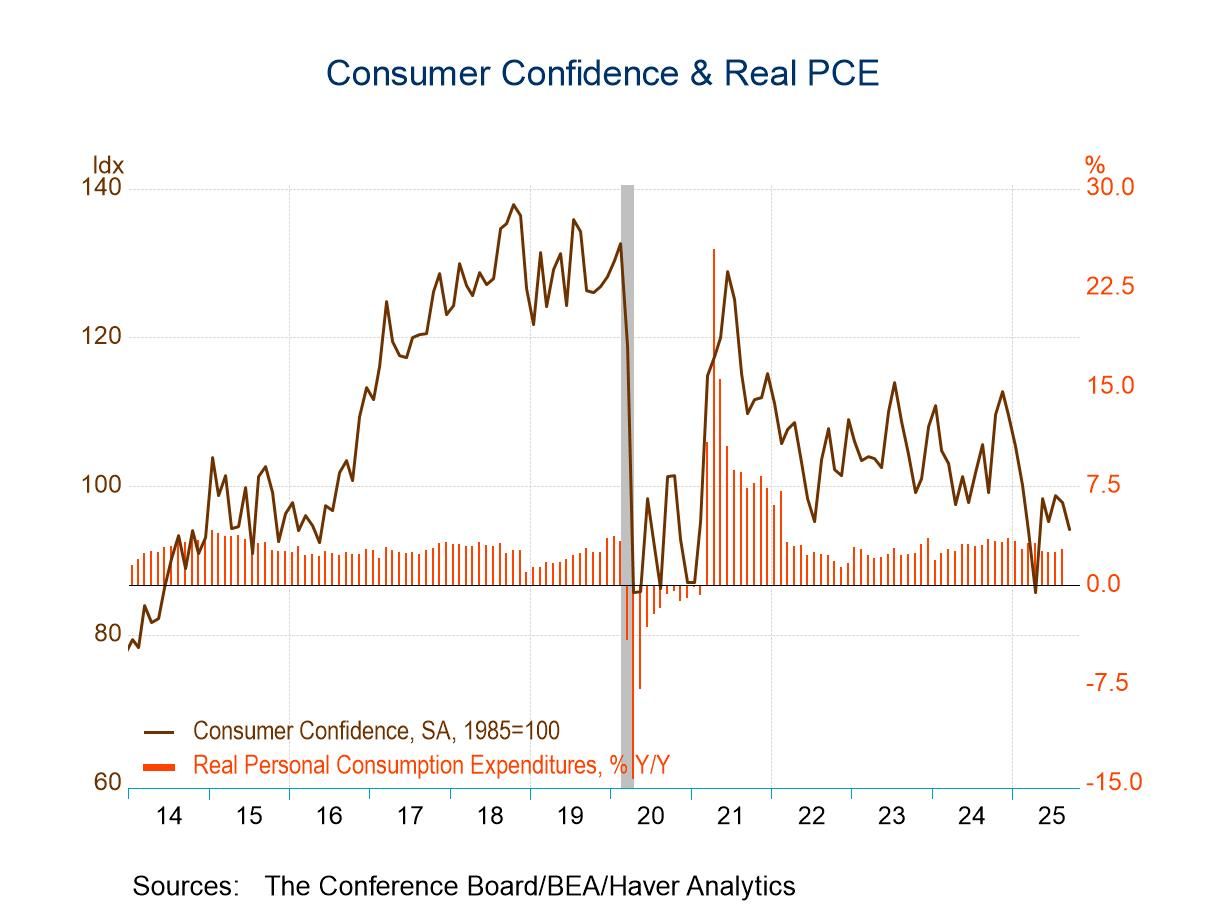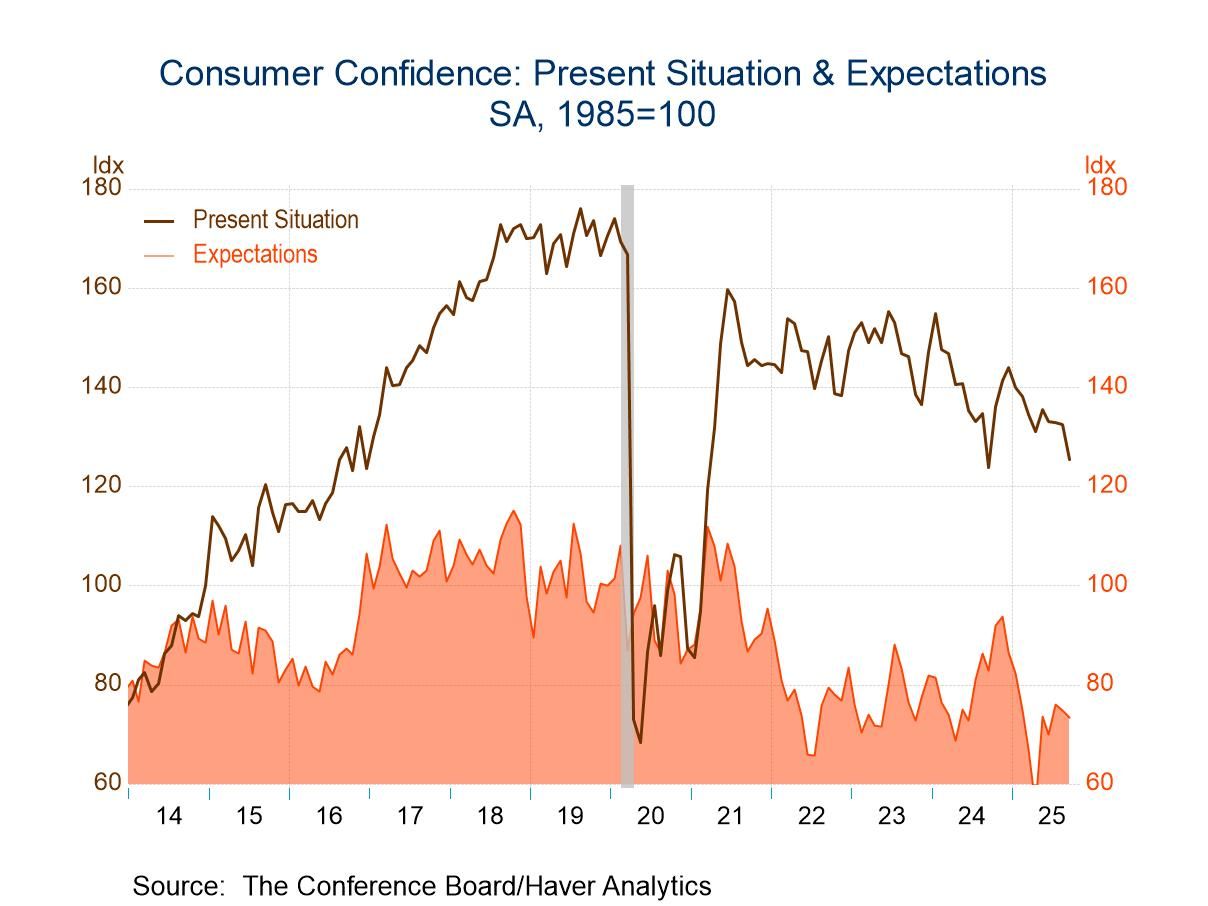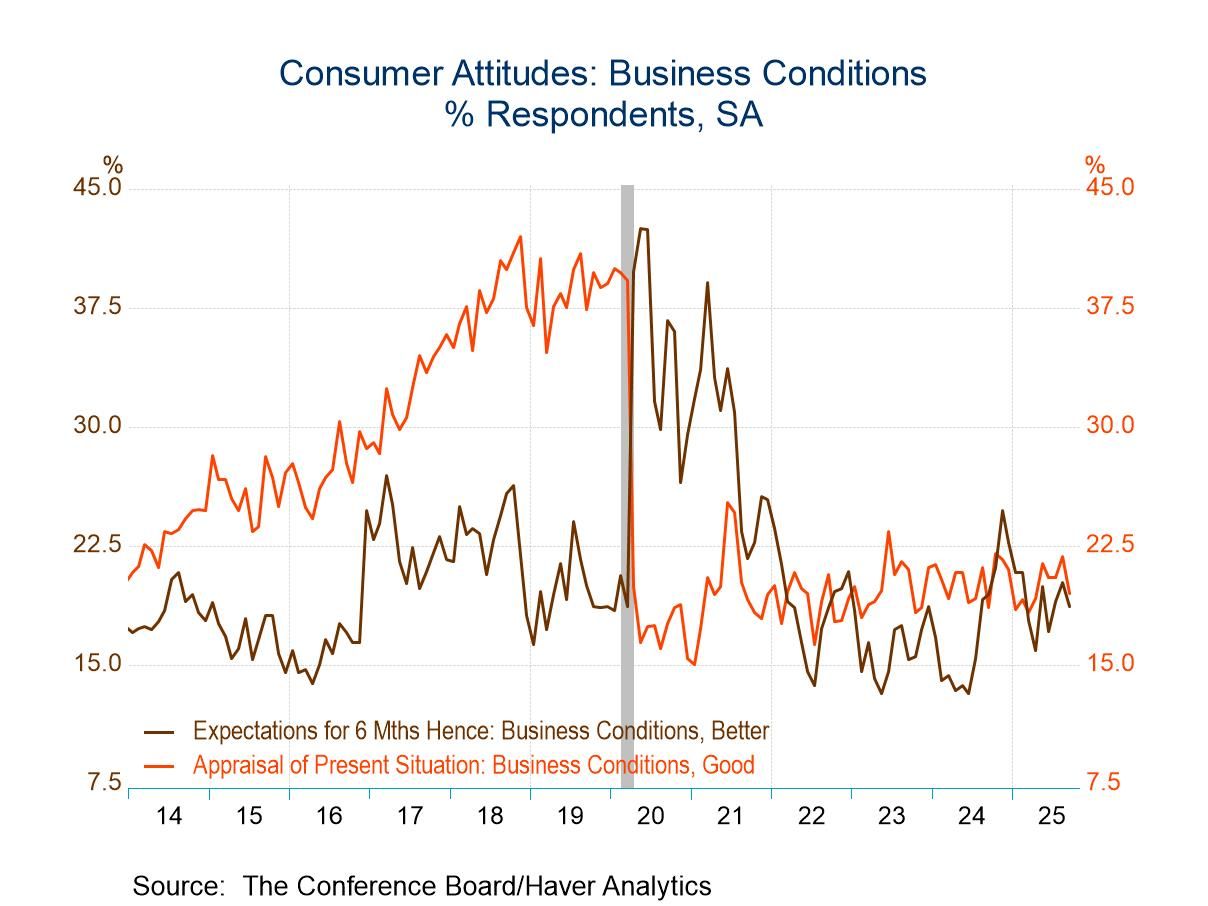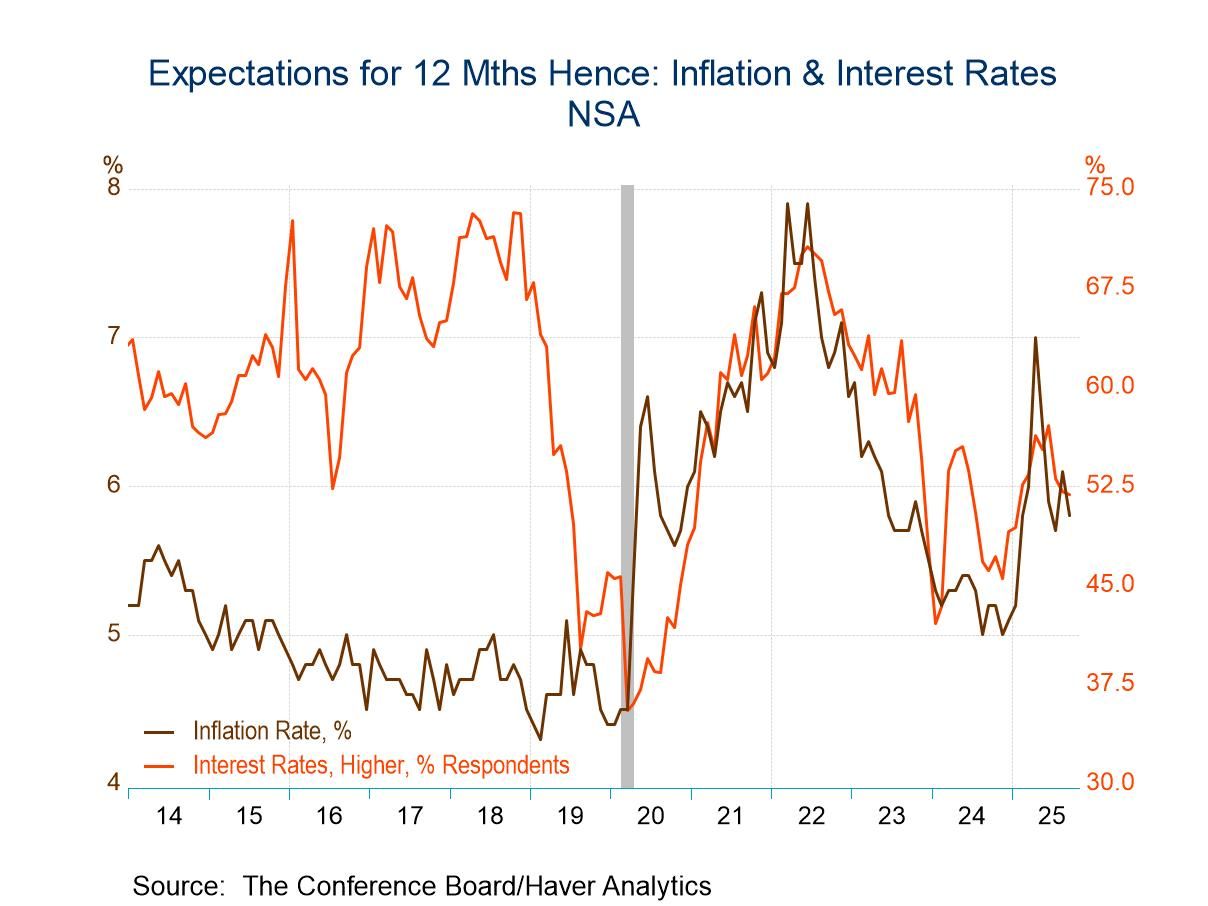U.S. Consumer Confidence Falls Sharply in September; Inflation Expectations Ease
by:Tom Moeller
|in:Economy in Brief
Summary
- Confidence level is lowest since April.
- Present situation & expectation readings decline.
- Inflation expectations reverse August increase.


The Conference Board's September Index of Consumer Confidence declined 3.7% (-5.0% y/y) to 94.2 during September. The decline came after weakening 0.9% in August, revised from down 1.3%, and increasing an unrevised 3.7% in July. A level of 95.5 had been expected in the Action Economics Forecast Survey. The index remained 16.5% below its peak last November.
The Present Situation index weakened 5.3% (+1.3% y/y) during September after easing 0.3% in August, revised from -1.2%, and slipping 0.2% in July. The Expectations Index declined 1.7% (-11.4% y/y) during September for the second consecutive month, after rising 8.7% in July.
The percentage of respondents assessing business conditions as “good” fell to 19.5% in September after rising to 21.8% in August. It was the weakest reading since April. The percentage assessing conditions as “bad” rose to 15.4% from 14.6% in August. The appraisal of weak labor market conditions continued as 26.9% described “jobs plentiful” versus 30.2% in August. That was down from a high of 56.7% in March of 2022. Jobs were viewed as “hard to get” by a steady 19.1% of respondents this month, but that was increased from a low of 10.5% in February 2023. The labor market differential calculated by Haver Analytics (the percentage of consumers who think jobs are plentiful minus the percentage who believe that jobs are currently hard to get) fell to 7.8% compared to 11.1% in August and 11.0% in July. This measure remained below a high of 47.1% in March 2022. It has a 60% correlation with the unemployment rate over the last ten years.
Expectations for business conditions deteriorated this month as a lessened 18.7% of respondents expect conditions to improve over the next six months, after 20.2% did so in August, while a lessened 22.3% expect them to worsen, after rising to 23.5% in August. On employment, 16.1% expect the number of jobs to increase over the next six months versus 17.9% in August. The percentage expecting the number of jobs to decline in the next six months eased to 25.6% after rising to 25.9% in August. A lessened 17.6% of respondents expect income to increase in six months, down from 18.8% in August. That remained off a high of 20.7% in November and compares to a lessened 11.7% who expect income to decrease, down from 13.3% in August.
The expected rate of price inflation over the next twelve months fell to 5.8% in September and reversed the August increase to 6.1%. These remain up from a low of 5.0% last November. Fifty-two percent of respondents expect interest rates to rise this year, up from a 45.5% November 2024 low. The percentage of respondents expecting equity prices to increase over the next twelve months held steady at 48.9%, the most since January. The percentage expecting a decline in stock prices fell to 27.6% after rising to 30.2% in August.
The percentage of respondents planning to buy a home rose to 6.6% this month after rising slightly to 5.8% in August. Plans to purchase an automobile eased to 11.3% this month and reversed the August increase to 11.7%. These readings remain up from a low of 10.6% in April.
The Consumer Confidence data are available in Haver’s CBDB database. The total indexes, which are indexed to 1985=100, appear in USECON, and market expectations are in AS1REPNA.


Tom Moeller
AuthorMore in Author Profile »Prior to joining Haver Analytics in 2000, Mr. Moeller worked as the Economist at Chancellor Capital Management from 1985 to 1999. There, he developed comprehensive economic forecasts and interpreted economic data for equity and fixed income portfolio managers. Also at Chancellor, Mr. Moeller worked as an equity analyst and was responsible for researching and rating companies in the economically sensitive automobile and housing industries for investment in Chancellor’s equity portfolio. Prior to joining Chancellor, Mr. Moeller was an Economist at Citibank from 1979 to 1984. He also analyzed pricing behavior in the metals industry for the Council on Wage and Price Stability in Washington, D.C. In 1999, Mr. Moeller received the award for most accurate forecast from the Forecasters' Club of New York. From 1990 to 1992 he was President of the New York Association for Business Economists. Mr. Moeller earned an M.B.A. in Finance from Fordham University, where he graduated in 1987. He holds a Bachelor of Arts in Economics from George Washington University.
More Economy in Brief
 Global| Feb 05 2026
Global| Feb 05 2026Charts of the Week: Balanced Policy, Resilient Data and AI Narratives
by:Andrew Cates






